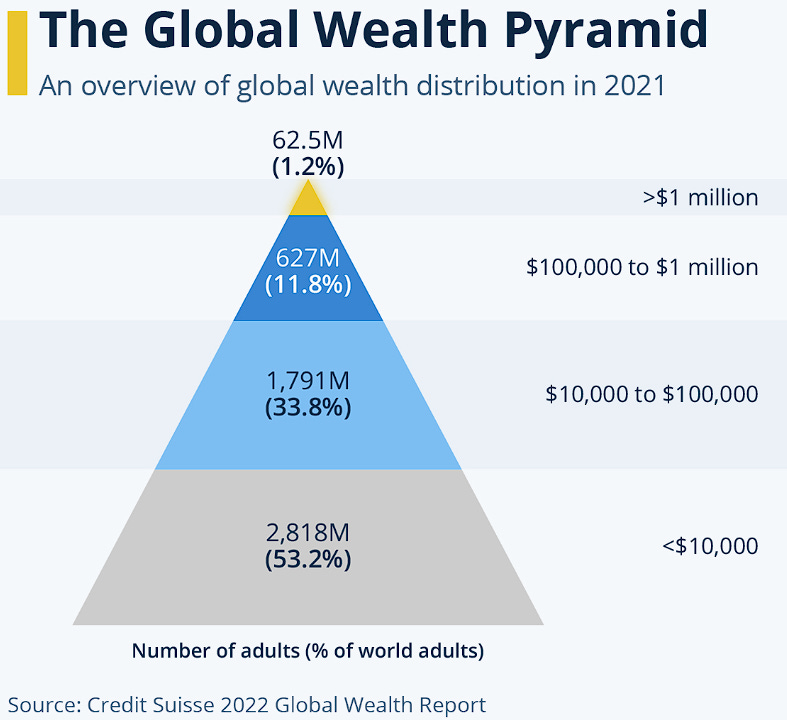Instead of delving into recent news or theoretical topics today, I want to explore the concept of Wealth Perception. Before diving into its definition, let's examine it through what I call the Friendship paradox.
Allow me to share a bit about my school friend group, which included Aman (not his real name), a highly skilled socializer. Despite already having a large circle of friends, he claimed to have very few friends. This revelation left me in an existential crisis, realizing that the relative comparison of friend groups, much like wealth, knows no end. This scenario is what I like to call the Friendship paradox, a concept closely related to wealth perception.
In an interview, Lloyd Blankfein, former CEO of Goldman Sachs, expressed that he doesn't feel rich at all, even as a billionaire. This statement left me astonished. This is where wealth perception comes into play. Even the wealthiest individuals will always find someone they perceive as wealthier, leading to a perpetual sense of inferiority. Consider this mind-blowing statistic: earning $4,120 annually places you among the top 50% of the world's income earners. While this may sound wild, it's a bare minimum, roughly 3.5 lakh rupees per annum, to be part of this class.
To be in the top 10%, you need to earn $93,170 per annum. Yet, being in either of these classes doesn't necessarily make one feel rich. This highlights the relative nature of being wealthy, as even Bernard Arnault, the richest person globally, continues working to amass more wealth. If your happiness hinges on wealth, it's crucial to reconsider your metric, or you might never find satisfaction.
In conclusion, I encourage you to measure your progress not solely in absolute terms but by reflecting on the substantial growth achieved over the past few years. Approach life initially as a growth stock, but aim to conclude it as a value stock.
Check out our socials to stay up-to-date
Instagram: @mytwocentsarewithyou
LinkedIn: My Two Cents




